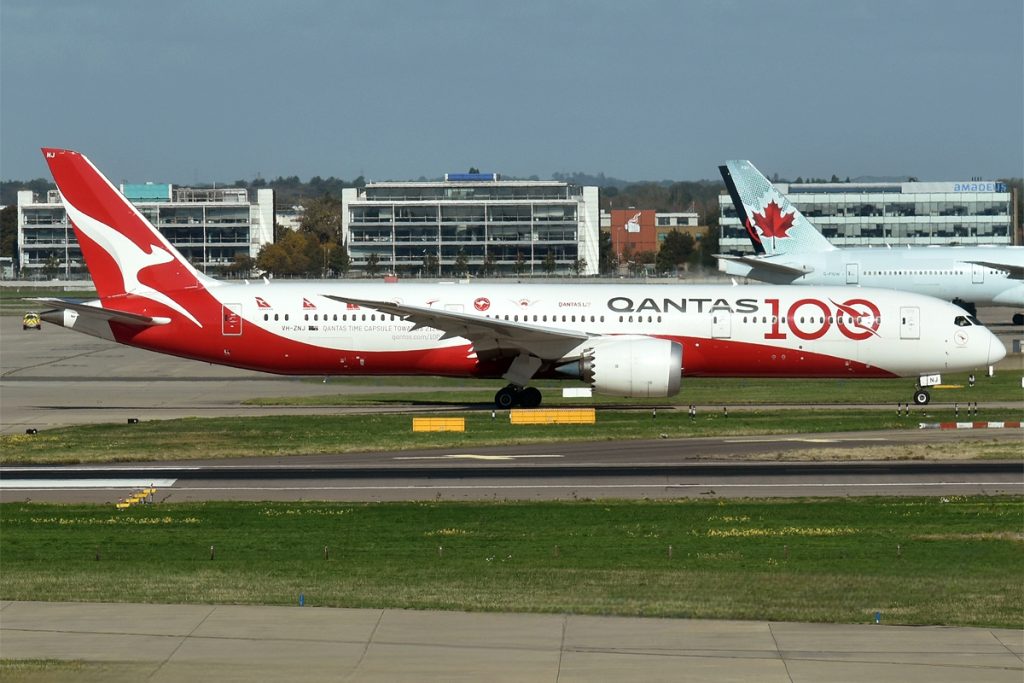In a move reflecting the escalating tensions in the Middle East, Qantas Airways has made the strategic decision to temporarily pause its non-stop flights from Perth to London. This shift comes as a response to concerns over potential threats to security, particularly the heightened risk of an Iranian attack on Israel. As geopolitical dynamics continue to evolve, the aviation industry finds itself navigating through uncertain skies, balancing passenger safety with operational efficiency.
Understanding the Situation: The decision by Qantas to alter its flight path underscores the complex geopolitical landscape of the Middle East. With Iran’s growing influence in the region and ongoing tensions with Israel, concerns over the safety of airspace have prompted airlines to reassess their routes. The shift from a direct Perth to London flight to a route via Singapore highlights the necessity for adaptability in the face of geopolitical uncertainty.
Implications for Air Travel: For passengers accustomed to the convenience of non-stop flights, the adjustment may introduce logistical challenges and longer travel times. However, ensuring the safety and security of travelers remains paramount, especially in regions where political tensions run high. As airlines navigate these challenges, transparency and communication with passengers become essential elements in maintaining trust and confidence in air travel.
Geopolitical Dynamics at Play: The decision by Qantas reflects broader concerns within the international community regarding the stability of the Middle East. With the United States and its allies closely monitoring developments, diplomatic efforts are underway to prevent further escalation of tensions. Calls for restraint from leaders such as President Joe Biden underscore the gravity of the situation and the imperative of finding diplomatic solutions to regional conflicts.
Economic and Strategic Considerations: Beyond the immediate impact on air travel, the geopolitical tensions in the Middle East carry significant economic and strategic implications. Disruptions to air routes not only affect airlines but also impact global trade and connectivity. As businesses and governments assess the risks, contingency plans must be developed to mitigate potential disruptions to supply chains and diplomatic relations.
Diplomatic Efforts and Regional Stability: Amidst the uncertainty, diplomatic channels remain crucial in de-escalating tensions and promoting stability in the region. Efforts by countries such as Australia to engage with regional actors and urge restraint highlight the importance of multilateral cooperation in addressing complex geopolitical challenges. By leveraging diplomatic relationships and diplomatic channels, the international community can work towards easing tensions and preventing further conflict.
The Role of Airline Industry in Geopolitical Events: The decision by Qantas to alter its flight path underscores the interconnectedness of the airline industry with global geopolitics. As carriers navigate through geopolitical turbulence, they must strike a delicate balance between operational efficiency and passenger safety. Collaborative efforts between airlines, governments, and international organizations are essential in ensuring the resilience and security of global air travel networks.
The temporary pause of Qantas’ Perth to London route serves as a stark reminder of the profound impact of geopolitical events on the aviation industry. As tensions persist in the Middle East, the need for vigilance, adaptability, and diplomatic engagement becomes ever more pressing. By prioritizing safety and cooperation, stakeholders can navigate through turbulent skies and uphold the promise of safe and seamless air travel for passengers worldwide.
